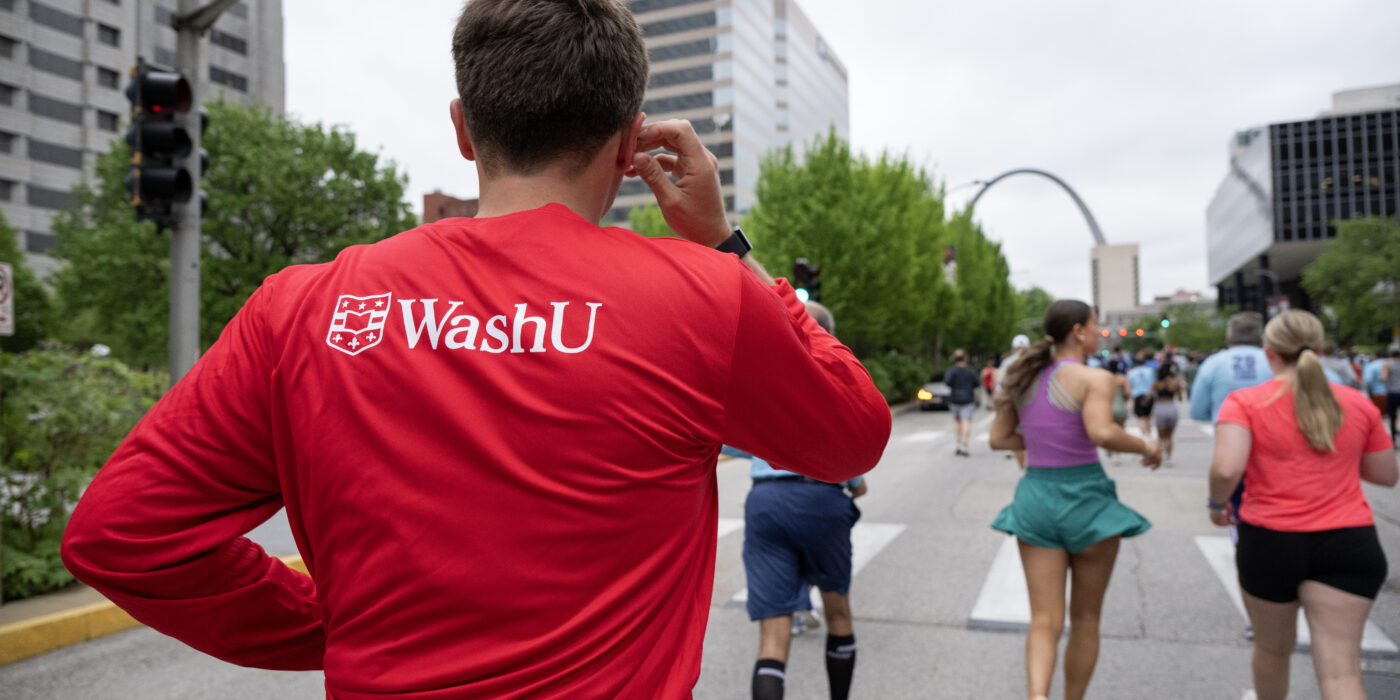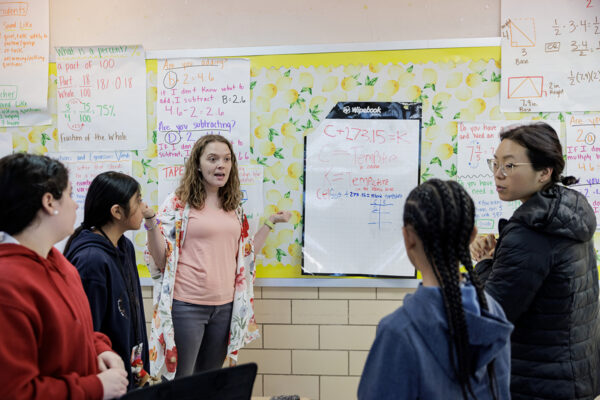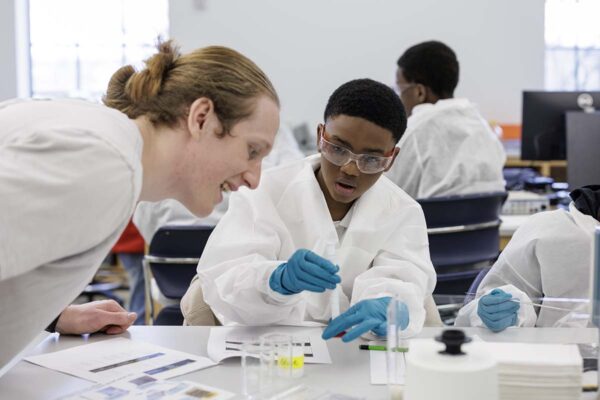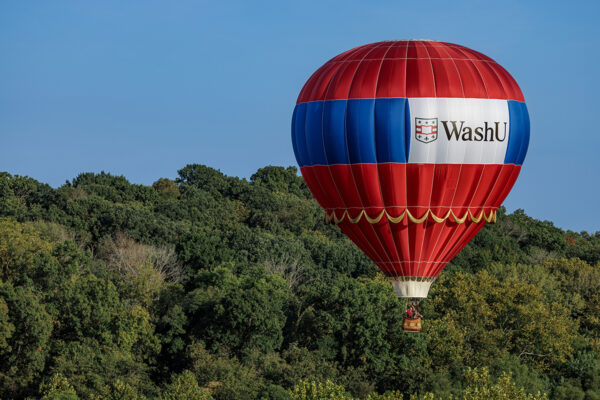What is the role of a university? They not only educate students and provide research hubs for scholars but can be a vital part of a local community. WashU professors, students and deans discuss the evolving role of a college during a campus tour. Speakers discuss initiatives to expand access to local students, bolster the regional economy, connect with adult learners and address health care needs. Their work is part of WashU’s In St. Louis For St. Louis initiative, an institution-wide commitment that draws upon the university’s strength as an economic anchor, global talent magnet and leader in research, education and patient care to create real, lasting impact and opportunity in St. Louis and beyond.
When: 5 p.m. to 6:30 p.m. Friday, May 30
Where: Sumers Welcome Center, WashU
Directions: Diane Toroian Keaggy, senior news director for campus & community, and Dacoda Scarlett, associate director for rural recruitment, will accompany guests from the Union Station Metrolink Station departing at 4:46 p.m. on the Blue Line to the Skinker Station. Tickets provided. Or rideshare to Sumers Welcome Center, 1 Wrighton Way. Participants will return to Union Station on the Blue Line Metrolink, departing WashU at 6:23 p.m. and arriving at Union Station 6:36 p.m.
Contact: 314-974-4238 or diane.keaggy@wustl.edu
Expanding access for local students
Mason Shaver

St. Louis native Mason Shaver is a rising WashU senior and QuestBridge scholar studying political science and education studies. As a high school student, Shaver joined WashU’s free College Prep Program for talented, low-income students. He now serves as a College Prep program assistant, helping the next generation navigate the college search and financial aid process. Shaver aspires to be an attorney and is a member of Yale Law School’s Launchpad Scholars Program, which aims to broaden access to the legal profession.
College Prep Program
The College Prep Program (CPP) is an immersive four-year experience that prepares talented first-generation, limited-income high school students from the St. Louis region to succeed in college. CPP scholars take college courses, prepare for the ACT, learn about financial aid and visit nearby universities and cultural institutions. Launched in 2014, CPP recently graduated its ninth cohort. Ten of the cohort’s 36 members will attend WashU this fall, receiving a total of $820,000 in university aid. Other students have received offers from some 60 state and private universities, community colleges and historically Black colleges and universities.
Learn more:
Ten College Prep Program grads secure spots at WashU with $820,000 in aid
Each CPP scholar is assigned a mentor from Undergraduate Admissions, who helps them navigate the often confusing college search and financial aid process.
The program was initiated by then-Chancellor Mark S. Wrighton, who wanted to help address the yawning disparities in college completion in the St. Louis region.
Dacoda Scarlett
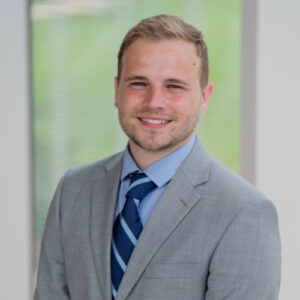
Dacoda Scarlett is the inaugural associate director for rural recruitment at WashU Undergraduate Admissions. Scarlett and his team oversee the recruitment and enrollment of rural students, educate rural communities about the college admissions process and coordinate fly-in programs for rural high school students, their families and high school counselors. Scarlett grew up in the small town of Clever, Mo. and is pursuing a PhD in higher education administration from Saint Louis University.
Heartland Initiative
The Heartland Initiative is dedicated to serving students from rural and small-town communities throughout Missouri and southern Illinois. Since 2022, WashU has increased visits to rural high schools, established new programs that introduce counselors to the university and engaged current WashU students from rural areas to serve as ambassadors and mentors. WashU also has launched Rural Scholars Academy, a free, one-week summer program that introduces talented rising juniors who live in Missouri and southern Illinois to life at WashU and St. Louis. WashU also is a founding member of the STARS College Network, a nationwide effort to help students from small towns and rural communities enroll in, succeed at and graduate from the undergraduate program of their choice.
Learn more:
Paving a path to WashU for rural students
WashU has launched two major financial aid initiatives to make the university more affordable, especially for rural students: the WashU Pledge, which provides admitted lower-income students from Missouri and southern Illinois a free WashU education, and the no-loan financial aid policy, which enables students to graduate debt-free.
Rural student surprised with a WashU Pledge scholarship
In 2023, Angela Chen joined the first class of the WashU Rural Scholars Academy, a free program that introduces talented high school students to all that WashU and St. Louis have to offer. This fall, she is set to return — this time as a first-year student on a full-ride scholarship.
Improving community health
Bettina F. Drake
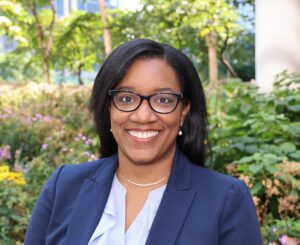
Bettina Drake is the Michael F. Neidorff Professor of Surgery at WashU Medicine; assistant vice provost for community engaged research, associate director of community outreach and engagement at Siteman Cancer Center and director of the Confluence Collaborative for Community-Engaged Research, Teaching & Practice
As a cancer epidemiologist, Drake is focused on understanding health inequities and identifying cancer prevention strategies that help reduce racial and ethnic disparities in cancer care and utilizing community-engaged strategies to disseminate evidence-based interventions to promote health equity. As director of the Confluence Collaborative for Community-Engaged Research, Teaching & Practice, Drake looks to elevate and amplify WashU’s community-engaged scholarship efforts.
The Confluence Collaborative for Community-Engaged Research, Teaching & Practice
The Confluence Collaborative for Community-Engaged Research, Teaching & Practice fosters collaboration between WashU and St. Louis communities to create sustainable,
community-focused partnerships that address community-identified needs and advance academic and research excellence. To this end, the Confluence Collaborative acts as a connector for community members and WashU faculty; provides training and guidance on building effective community partnerships; works with faculty-partner teams to design community-engaged courses and research projects, and assists with the development and implementation of community-engaged research. In addition, the Confluence Collaborative creates capacity-building opportunities for non-profit organizations and reports on the public impact of WashU’s community-engaged scholarship agenda.
Learn more:
A pilot study showed the prenatal care group can help to reduce preterm deliveries and improve mental health, the leading cause of pregnancy-related death in the St. Louis region.
Morven McLean
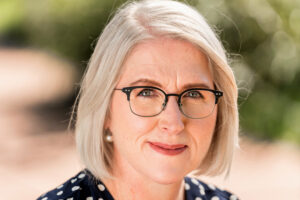
Morven McLean is executive director of networks & innovation and professor of practice in the School of Public Health and inaugural director of WashU’s Food and Agriculture Research Mission (FARM) at the new School of Public Health. An agricultural scientist with more than 25 years of experience, McLean has dedicated her career to developing and implementing applied agricultural research and capacity-building programs that address scientific, regulatory and trade issues related to agricultural innovation and food security. Previously, McLean served as director of global strategy, regulatory and public affairs at Gates Agricultural Innovations (Gates Ag One), a subsidiary of the Gates Foundation.
Learn more:
WashU launches FARM to drive food system transformation
WashU is launching the Food and Agriculture Research Mission (FARM), an ambitious initiative that aims to address challenges in agricultural production, food distribution and access to nutritious foods by developing practical, scalable solutions for global impact.
Welcome to WashU School of Public Health
WashU’s first new school in 100 years, the School of Public Health is working to meet current and future challenges in public health in St. Louis and globally.
Paving pathways for local workers
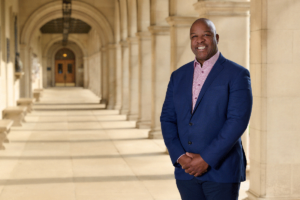
Asquith “Sean” Armstrong
Asquith “Sean” Armstrong is dean of the School of Continuing & Professional Studies (CAPS), where he has implemented a higher education structure that meets the needs of the region’s economy and promotes economic and social mobility for its residents. With over 25 years of educational experience in primary, secondary and post-secondary education and his own experience as a non-traditional student, Armstrong is creating flexible pathways to higher education for St. Louisans who are balancing personal and professional responsibilities with their education goals. CAPS also serves a model for higher education institutions looking to democratize education in their own communities.
Kilinyaa Cothran
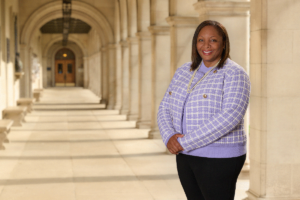
As the vice dean and director for healthcare programs at CAPS and interim director of the Prison Education Project, Kilinyaa Cothran is responsible for creating a quality academic experience for all CAPS students. She has developed market-aligned academic and professional programs that re-imagine what and how instruction is provided and strives to help both degree and non-degree seeking students have a positive impact in their communities and the workforce.
WashU Continuing & Professional Studies
WashU Continuing & Professional Studies (CAPS) strengthens the St. Louis region by providing accessible, career-connected education to adults from the St. Louis region. Through community-focused programs like the Prison Education Project, Osher Lifelong Learning Institute and English Language Programs, CAPS reaches learners who are often balancing personal and professional responsibilities with their educational goals. The school partners with local employers and organizations to develop training in high-demand fields like health care, data and nonprofit leadership, ensuring students gain real-world skills while supporting regional workforce needs. CAPS also helps learners overcome social, cultural and financial barriers by offering flexible formats and personalized support. Whether helping someone finish a degree, change careers or pursue lifelong learning, CAPS is a powerful engine for personal growth, equity and economic development across the St. Louis community.
Learn more
PEP was launched in 2014 at the Missouri Eastern Correctional Center (MECC), a men’s facility in Pacific, Mo. In the decade since, the project has recruited more than 100 WashU faculty to teach classes, awarded more than 50 degrees and seen more than 30 alumni return home to the St. Louis area.
CAPS launches new program for lab techs
The accelerated 16-week program is designed for working adults with online and evening classes. Grants are available to cover the full cost of tuition for eligible students.
